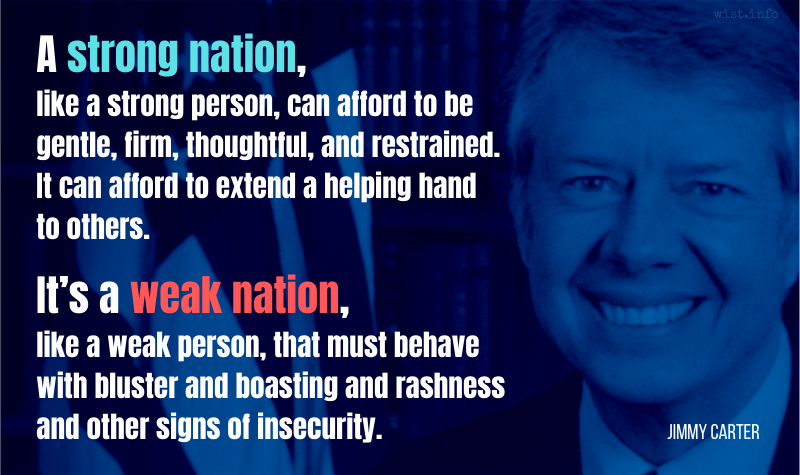He shall come to know
Dionysus, son of Zeus, consummate god,
most terrible, and yet most gentle, to mankind.[γνώσεται δὲ τὸν Διὸς
Διόνυσον, ὃς πέφυκεν ἐν τέλει θεός,
δεινότατος, ἀνθρώποισι δ᾽ ἠπιώτατος.]Euripides (485?-406? BC) Greek tragic dramatist
Bacchæ [Βάκχαι], l. 859ff [Dionysus/Διόνυσος] (405 BC) [tr. Arrowsmith (1960)]
(Source)
Speaking of King Pentheus. (Source (Greek)). Alternate translations:
Thus he shall know dread Bacchus, son of Jove,
A god most terrible when he asserts
His slighted power: but gracious to mankind.
[tr. Wodhull (1809)]
He will recognize the son of Zeus, Dionysus, who is in fact a god, the most terrible and yet most mild to men.
[tr. Buckley (1850)]
Know he must
Dionysus, son of Jove, among the gods
Mightiest, yet mildest to the sons of men.
[tr. Milman (1865)]
There belike to tell
That Dionysus, son to Zeus, is god,
Most terrible, most gracious unto men.
[tr. Rogers (1872), l. 820ff]
So shall he recognize Dionysus, the son of Zeus, who proves himself at last a god most terrible, for all his gentleness to man.
[tr. Coleridge (1891)]
And he shall know Zeus' son
Dionysus, who hath risen at last a God
Most terrible, yet kindest unto men.
[tr. Way (1898)]
So shall he learn and mark
God's true Son, Dionyse, in fulness God,
Most fearful, yet to man most soft of mood.
[tr. Murray (1902)]
And he shall recognize the son of Zeus,
Dionysus, as a god in perfect essence:
a terrible one, but to men most gentle.
[tr. Kirk (1970)]
And he shall know the son of Zeus, Dionysus; who, those most gentle to mankind, can prove a god of terror irresistible.
[tr. Vellacott (1973)]
Consummate god, most terrible, most gentle
To mankind.
[tr. Soyinka (1973), Bacchante speaking]
He shall know Zeus’ son
Dionysos, that he is in his fullness a god
most dreadful, and to men most mild.
[tr. Neuburg (1988)]
So shall Pentheus come to know Dionysus, son of Zeus,
a God sprung from nature, like nature most cruel,
and, yet, most gentle to mankind.
[tr. Cacoyannis (1982)]
And he'll know
Zeus-born Dionysos is a true divinity,
Most terrifying to men, and most kind.
[tr. Blessington (1993)]
He will come to know Dionysus, the son of Zeus,
that he is, in the ritual of initiation, a god most terrifying,
but for mankind a god most gentle.
[tr. Esposito (1998)]
Then he will know the son of Zeus,
Dionysus, and realize that he was born a god, bringing
terrors for initiation, and to the people, gentle grace.
[tr. Woodruff (1999)]
And he will know that Dionysos, son
Of Zeus, was born a god in full, and is
Most terrible to mortals and most gentle.
[tr. Gibbons/Segal (2000)]
He will learn that Dionysus is in the full sense a god, a god most dreadful to morals -- but also most gentle!
[tr. Kovacs (2002)]
He'll learn the nature of this son of Zeus:
The sweetest and most fearsome of the gods.
[tr. Teevan (2002)]
Only then will he learn that the son of Zeus, Dionysos, is a god of peace for the good folk but he is also a fearsome god who those who don’t respect him.
[tr. Theodoridis (2005)]
He will recognize Zeus' son Dionysus, born in ritual,
The most terrible god -- and kindest to humans.
[tr. Valerie (2005)]
He'll come to acknowledge
Dionysus, son of Zeus, born in full divinity,
most fearful, yet most kind to human beings.
[tr. Johnston (2008)]
And he shall finally know Dionysus, son of Zeus,
a god both terrible and gentle to the world of man.
[tr. Robertson (2014)]
He will know Dionysus. He will know the son of Zeus to be true-god-born, to be the greatest horror to mortal kind.
And the greatest helper.
[tr. Pauly (2019)]
He shall learn that Dionysus is the son of Zeuis, a god with the power of a god, a god most fearful and most gentle.
[tr. Behr/Foster (2019)]
And he will come to know the son of Zeus,
Dionysus, the one who is by his own nature a god in the end [telos],
the one who is most terrifying [deinos], but, for humans, also most gentle [ēpios ].
[tr. Buckley/Sens/Nagy (2020)]
Quotations about:
gentleness
Note not all quotations have been tagged, so Search may find additional quotes on this topic.
Civility does not here mean the mere outward gentleness of speech cultivated for the occasion, but an inborn gentleness and desire to do the opponent good.
Mohandas Gandhi (1869-1948) Indian philosopher and nationalist [Mahatma Gandhi]
Autobiography : The Story of My Experiments with Truth>, ch. 24 (1927)
(Source)
KING : Am I the strongest or am I not?
BECKET: You are, today. But one must never drive one’s enemy to despair. It makes him strong. Gentleness is better politics. It saps virility. A good occupational force must never crush, it must corrupt.Jean Anouilh (1910-1987) French dramatist
Becket, Act 2 (1959) [tr. Hill (1961)
(Source)
The lines remain intact in Edward Anhalt's 1964 screenplay.
Gentleness is everywhere in daily life, a sign that faith rules through ordinary things: through cooking and small talk, through storytelling, making love, fishing, tending animals and sweet corn and flowers, through sports, music and books, raising kids — all the places where the gravy soaks in and grace shines through.
A strong nation, like a strong person, can afford to be gentle, firm, thoughtful, and restrained. It can afford to extend a helping hand to others. It’s a weak nation, like a weak person, that must behave with bluster and boasting and rashness and other signs of insecurity.
Jimmy Carter (b. 1924) American politician, US President (1977-1981), Nobel laureate [James Earl Carter, Jr.]
“Warm Hearts and Cool Heads,” speech, Liberal Party dinner, New York City (14 Oct 1976)
(Source)
The title of the speech was from a phrase coined by Adlai Stevenson.






